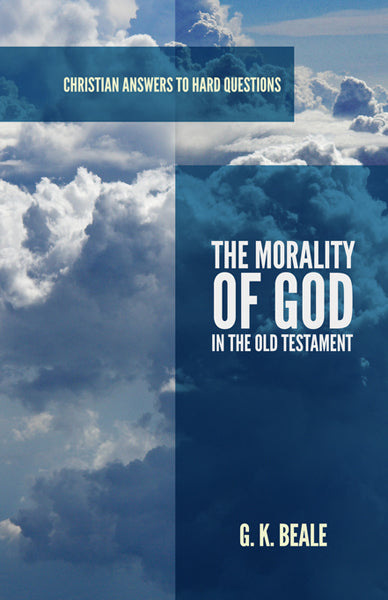Reviewed by Fred G. Zaspel
This little booklet takes up a big question that many skeptics have used against Christianity and that many Christians themselves have found so puzzling: If God is good how can he do so many things that do not seem good and, in fact, seem so bad? And how can he command his people to do things that seem so awful? Primarily in view here, of course, are the commands of God to Israel to annihilate the Canaanites (non-combatants, women, children, all) and the “imprecatory” Psalms, the psalms that invoke a curse on enemies. Do these things reflect poorly on God? How do these square with God’s goodness and his justice? How does it square with Jesus’ command to love our enemies?
Some have argued, simply, that God’s command itself is sufficient to know that the command is right and just. Fair enough, and such is certainly the case. But more inquisitive minds, no less trusting of God’s moral consistency, want to understand, if at all possible, how these things fit within God’s larger self-revelation and why, then, the commands were given. We believe that God always does what is right, but the question here is how that is so in these instances. Briefly, in the extermination commands and in the imprecatory Psalms there might seem to be some inconsistency on God’s part — in which case, for the believer, the question is not whether God is just in all his actions but how to clear our confusion and resolve the seeming inconsistency.
Greg Beale, Professor of New Testament and Biblical Theology at Westminster Theological Seminary in Philadelphia, writes to this end in his new The Morality of God in the Old Testament, and he does so in an engaging and uniquely helpful way.
After introducing the question for the reader Beale surveys two plausible answers that have been offered by others — the extenuating circumstances of “wartime ethics” and a non-literal understanding of the commands — and he determines that neither can account for the details involved. So he proposes a more comprehensive solution that focuses on redemptive-historical considerations and the sovereign rule of God over all things, including life and death.
In brief Beale understands these commands in terms of their unique redemptive-historical moment, as well within the sovereign rights of the Creator, and as a preview of the end-time judgments that will come on all peoples. He suggests that this mix of factors — five in all — provides the framework in which this Old Testament “problem” is best resolved and understood. Beale’s famously rich background in the New Testament writers’ understanding of the Old Testament pays off here very well (see his Handbook on the New Testament Use of the Old Testament [Kindle]; also with D.A. Carson his Commentary on the New Testament Use of the Old Testament [Kindle], both Baker Academic). His approach is unique, accessible, comprehensive (taking into consideration all the necessary details), yet concise and very satisfying.
Most pastors and many Christians generally have faced this question at some point, and cogent, carefully-reasoned answers are needed. As part of P&R’s Christian Answers to Hard Questions series, this little booklet is just 48 small-size pages, footnotes and all told. But don’t let its small size fool you. It is likely the most helpful resource on the question you will have in your library. Very highly recommended.
Fred G. Zaspel is Pastor of Reformed Baptist Church in Franconia, PA, professor of theology at Calvary Baptist Seminary, and executive editor here at Books At a Glance.
Buy the books

THE MORALITY OF GOD IN THE OLD TESTAMENT, by G. K. Beale